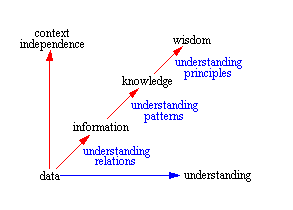The latest from Cambridge, Mass.
Categories:
It seems I'm about four field reports behind, so I’m providing four links that will help explain what I’ve been working on. The first two relate to my organization’s citizen journalism project and the last two to the youth video journalism club I work with.
1. NeighborMedia citizen journalism site
The third quarter of my VISTA term has been focused on outreach for NeighborMedia. I have been working with our citizen journalists, one neighborhood at a time, to identify outreach opportunities in their zip codes. We are promoting the project as a source of news and information, while trying to stress the participatory nature of the media in the hopes that people will get involved. Due to the civic-mindedness of the people in the program, engaging community members in issues they’re covering has been successful. The only problem is that many of our cit-jos simply do not have the time to be the sole correspondent – or one of two – in their area. It is a full time job, they say, which is why our model is not working as well as others have, and we are looking to re-examine the direction of the project. Some of the stories covered so far: holiday festivals, neighborhood development issues, traffic calming and snow emergency regulations.
2. NeighborMedia episodes
Each month, we try to put together the best of the content that was produced the previous month. Since much of the video content comes from BeLives (30 minutes on the hot set), we are trying to get creative so the show is not just talking heads. I have been rounding up staff members (including myself) to voice over blog entries, and I have an intern who helps me lay the voice track over photographs the cit-jos have taken. We have been assigning production mentors to work 1-on-1 with participants who seem to have the time but just not the know-how to produce video yet. Many of the cit-jos come from backgrounds in print journalism, so the transition to multimedia has been a real challenge for them.
3. Youth View Cambridge
This is the online archive of our new student newscast at Cambridge Educational Access, a media arts organization affiliated with Cambridge Rindge and Latin H.S. In terms of progress, I feel that we have come a long way. (By we, I mean myself and the CEA staff members I am working with.) Since this is an after-school program and that doesn't leave much room for a training program, we have started to really focus attention on certain students based on their strengths, interests and availability. Instead of reaching out for fresh talent, we are trying to make the most of the students we have, because by investing time in them it's more likely they'll stay involved throughout their high school years. (None are seniors.) There is a group of work-study students at the Media Arts Studio where are based, and we consider them part of our Video Journalism club because they often serve as the crew who goes out and shoots stories for the reporters who don't get paid. These students have some degree of technical expertise. What we realized was that one of them was weaker in the production sense, so we recruited him to instead be a key player on the news team (Associate Producer). He gets paid twice as much to do this, and he's a sophomore, so the hope is that he will really soak up a lot of knowledge and be able to pass it on in the coming years.
In other news, we recently tried to do a live-to-tape studio shoot, but it was unsuccessful, so we are trying to figure out how to get organized and make that happen. We found that it keeps students on their feet, so it has the potential to make shoots go more smoothly.
4. YVC blog
We set up this blog as a forum for story ideas and students’ thoughts, but instead it became a good way for us to document recent developments with the video journalism club. As you’ll see in the blog, we took a field trip to channel 5 in Boston where one of our other club leaders works part-time. He gave us a great tour and students had the opportunity to view the live newscast from the studio and control room. Also since the new year, a new program began that was supposed to be part of my VISTA work-plan but had to be cut out due to time constraints. Instead, the idea – to create a news program for 6th-graders – was tweaked and is now being run by one of the media teachers. She is teaching a few 11-year olds basic video news production skills so they can produce segments for YVC.
Another youth media milestone for me was a cyber-discovery that I made: hsbj.org, an offshoot of highschooljournalism.org, which led me to the RTNDF broadcast journalism teacher listserv. The messages that come through are often very helpful, making the listserv an extremely valuable resource for the high school broadcast journalism community.
------
(In news unrelated to my VISTA work, CCTV is hosting a Digital Divide pilot project in collaboration with the city and an educational nonprofit. Participating residents in a low-income housing development are receiving free wireless, refurbished computers and computer training. It's been a really interesting project to watch unfold, especially because it's so in line with the CTC VISTA mission!)















Comment from Kevin Palmer on January 24, 2008 - 3:02pm
Hey Jack,
As always I'm impressed by your Ruby know-how. One quick question: for an amateur like myself where would be a good place to start learning Ruby-on-Rails basics/how did you learn it? Thanks!
Comment from Jack Waugh on January 24, 2008 - 4:27pm
Hey, Kevin.
I started learning (I still have a lot to learn when it comes to the Rails framework) from Hansson, Thomas Heinemeier: _Agile Web Development with Rails_. However, I have heard at least one other Rails developer cite some other book, that I don't remember, that he said he liked better than Hansson's. You might want to scan some of the fora for conversations where others have asked for book recommendations and the more experienced people have responded. Maybe you'll see two or three reviews putting some other book above that one. Not that it's a bad book; I think its approach teaches quite well. He begins with the simplest working examples and builds on those.
One problem with writing about Rails is that Rails evolves pretty fast by comparison to the time scale on which books get published.
By the way, I came across a development that's maybe to the alpha-test stage, for which the author claims programming efficiency to put Rails to shame. See Flower.
Comment from Jack Waugh on January 25, 2008 - 10:30am
My mentor just wrote to me, "As an aid in learning Rails, and if you haven't already, I strongly suggest
spending some time with the screencasts at http://railscasts.com ". Those are free. Our other co-worker routinely watches one of those while he has his lunch, and he says they have informed him greatly.